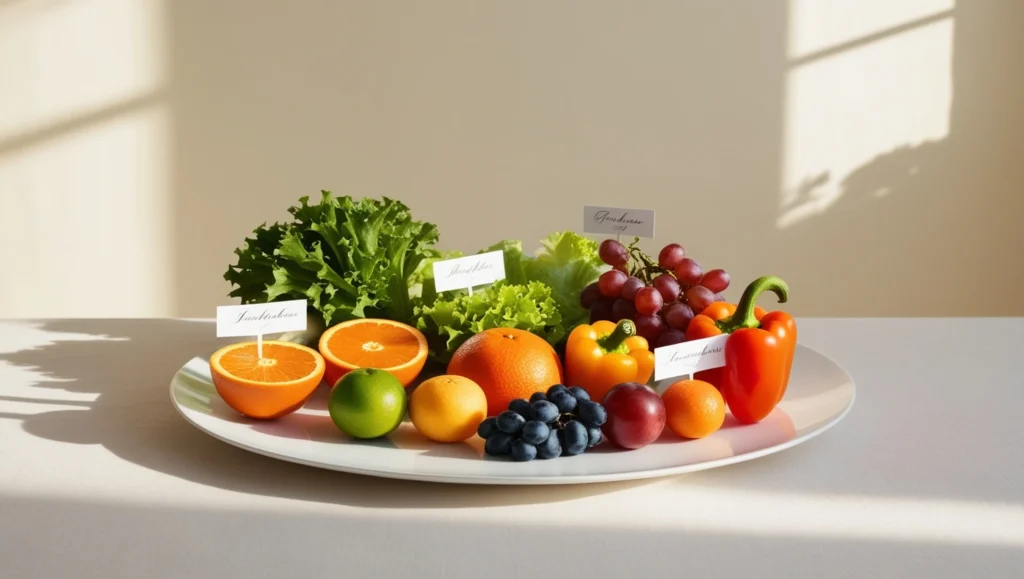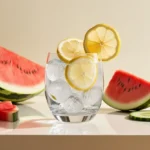Imagine this: you’re tackling a long day, yet halfway through, your energy dips, your mind feels foggy, and your productivity stalls. What’s the culprit? Surprisingly, the answer might be something as simple as water—or rather, the lack of it. Hydration is not just about quenching thirst; it’s a cornerstone of optimal health, cognitive performance, and energy levels.
In this post, we’ll dive deep into why hydration is essential, bust common myths, and provide you with practical, research-backed strategies to stay hydrated. Whether you’re an athlete, a busy professional, or simply someone aiming to feel better, this guide has you covered.
Table of Contents
The Science Behind Hydration and Your Body
Water is life—literally. It makes up around 60% of your body weight and is involved in nearly every physiological process. From regulating your temperature to flushing out toxins, hydration impacts your well-being in more ways than you might think.
Energy and Cognitive Function
Dehydration as mild as 1-2% of body weight can impair energy levels and focus. A study from the Journal of Nutrition found that even slight dehydration affects mood and concentration in women. Another study in Physiology & Behavior observed similar effects on men, emphasizing that cognitive function depends on proper hydration.
Source: Journal of Nutrition Study on Dehydration and Mood
Actionable Tip: Start your day with a glass of water to kickstart hydration. Pair it with your morning coffee or tea, but ensure you’re replenishing fluids, as caffeine can have mild diuretic effects.
Skin Health and Anti-Aging
Ever wondered why your skin feels dull? Dehydration might be to blame. Proper hydration maintains skin elasticity, prevents dryness, and may reduce the appearance of wrinkles. A study in the International Journal of Cosmetic Science revealed that increasing water intake improves skin hydration and texture.
Source:International Journal of Cosmetic Science on Skin Hydration
Actionable Tip: Add foods like cucumbers, watermelon, and oranges to your diet—they’re hydrating and packed with skin-nourishing nutrients.
Gut Health and Digestion
Water aids digestion by breaking down food and helping nutrients absorb more effectively. Inadequate hydration can lead to constipation and bloating. Keeping hydrated ensures smoother digestion and promotes a balanced gut microbiome.
Actionable Tip: Carry a water bottle infused with lemon or mint. The flavor boost encourages you to drink more and aids digestion.
Common Myths About Hydration—Debunked
Misinformation about hydration is everywhere. Let’s separate fact from fiction.
Myth 1: You Need Exactly 8 Glasses a Day
The “8×8 rule” is a general guideline, not a one-size-fits-all solution. Your hydration needs depend on factors like age, activity level, and climate.
Fact: A better approach is to listen to your body and monitor your urine color—light yellow indicates good hydration.
Myth 2: Caffeine Dehydrates You
While caffeine has a mild diuretic effect, moderate consumption doesn’t cause dehydration in regular coffee drinkers.
Fact: Your morning coffee contributes to your daily fluid intake. Just balance it with water throughout the day.
Myth 3: Thirst is the Only Indicator
By the time you feel thirsty, your body is already mildly dehydrated. Relying on thirst alone might not be enough, especially during workouts or in hot weather.
Fact: Stay proactive. Set reminders to drink water even when you don’t feel thirsty.
Practical Strategies for Staying Hydrated
Staying hydrated doesn’t have to be complicated. Here are science-backed, actionable tips to make hydration a habit.
1. Use Technology to Your Advantage
Download hydration tracker apps like MyFitnessPal or Hydro Coach. These apps remind you to drink water and track your progress throughout the day.
2. Incorporate Hydrating Foods
About 20-30% of your daily water intake comes from food. Include fruits and vegetables like lettuce, celery, strawberries, and zucchini.

3. Create Hydration Triggers
Link drinking water to existing habits. For example:
- Drink a glass before each meal.
- Refill your bottle every time you check your email.
- Take sips during TV commercials.
4. Invest in a Quality Water Bottle
A reusable water bottle keeps you mindful of your hydration goals. Opt for one with markers to track your intake or a built-in filter for clean, fresh water.
5. Hydrate Before and After Exercise
Sweat depletes your body’s water levels. Drink water before, during, and after workouts to stay ahead of dehydration.

How to Tell If You’re Properly Hydrated
Hydration isn’t one-size-fits-all, but your body provides signals. Look out for:
- Urine Color: Light yellow is ideal.
- Energy Levels: Persistent fatigue may indicate dehydration.
- Skin Elasticity: Gently pinch the skin on the back of your hand. If it doesn’t snap back quickly, you may need more water.
The Ripple Effect of Hydration: Real-Life Stories
Case Study: Sarah’s Productivity Boost
Sarah, a busy software engineer, struggled with afternoon fatigue. After tracking her hydration and aiming for 2.5 liters daily, she noticed a dramatic improvement in focus and energy. “It was a game-changer for my work and mood,” she shared.
Frequently Asked Questions
Why is hydration important for health?
How much water should I drink daily?
What are the signs of dehydration?
Does coffee or tea count toward daily water intake?
What are the best hydrating foods?
Can overhydration be harmful?
How does hydration affect skin health?
Is thirst a reliable indicator of hydration?
Conclusion: Drink Up and Thrive
Hydration is the unsung hero of good health. From improving energy and focus to enhancing skin and digestion, water plays a pivotal role in how you feel and perform. By integrating simple hydration habits into your daily routine, you can unlock a healthier, more vibrant you.
Ready to take the first step? Share your hydration journey in the comments, and don’t forget to check out our related post on Gut Health and Aging!









